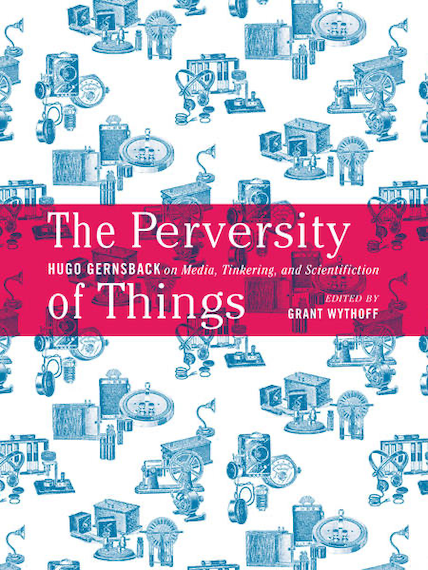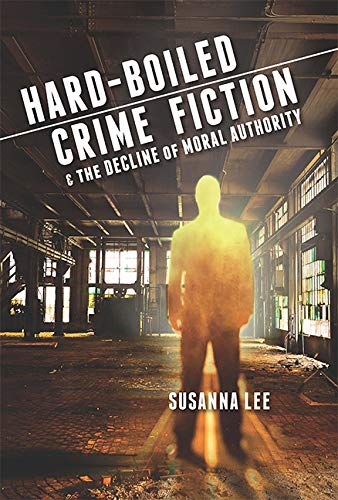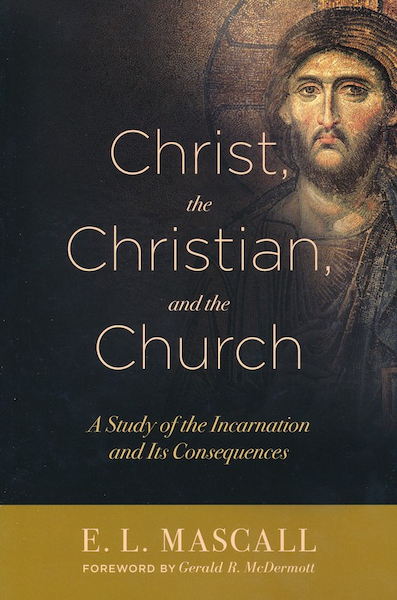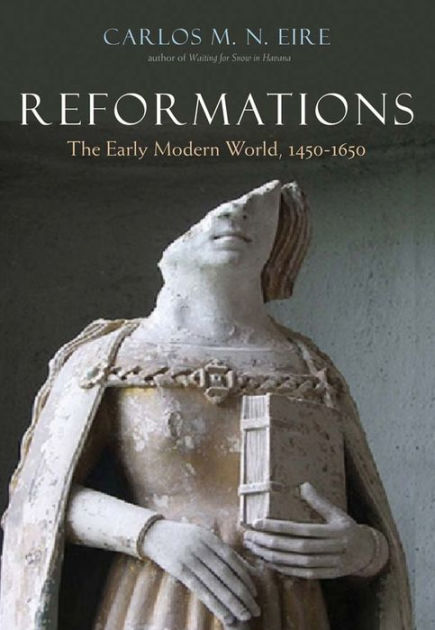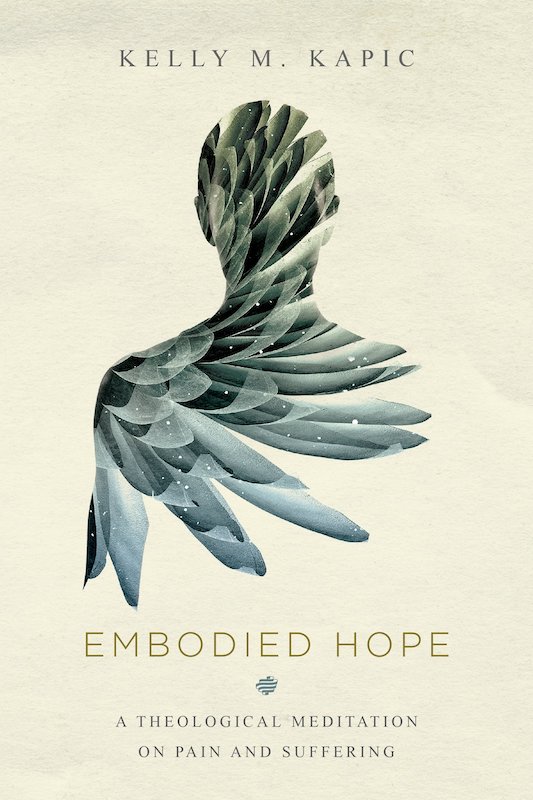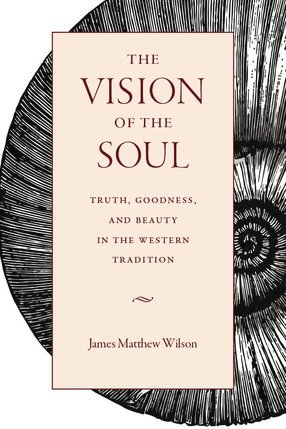PREVIEW
The player for this Journal volume is only available to current members or listeners with a legacy account. If you have an active membership, log in here. If you’d like to become a member — with access to all our audio programs — sign up here.
Guests heard on Volume 141
Grant Wythoff, author of The Perversity of Things: Hugo Gernsback on Media, Tinkering, and Scientification, on the technophiliac obsessions of Hugo Gernsback, the geeky midwife of modern science fiction
Susanna Lee, author of Hard-Boiled Crime Fiction and the Decline of Moral Authority, on how the hard-boiled protagonists of crime fiction in the 1930s and ’40s were replaced by more nihilistic tough guys in the 1950s and ’60s
Gerald R. McDermott, contributor to E. L. Mascall’s Christ, the Christian, and the Church, on how the work of theologian E. L. Mascall can expose blind spots in contemporary Christian thought
Carlos Eire, author of Reformations: The Early Modern World, 1450–1650, on how and why religion became “interiorized” in the wake of the reformations of the sixteenth century
Kelly Kapic, author of Embodied Hope: A Theological Meditation on Pain and Suffering, on theology’s use of experience and why the Incarnation is the ground of Christian hope
James Matthew Wilson, author of The Vision of the Soul: Truth, Goodness, and Beauty in the Western Tradition, on the beauty of truth and goodness, and on the necessity of cultivating “intellectual vision”
Related reading and listening
- Truth, goodness, and beauty (and why they matter) — FROM VOL. 147 Philosopher D. C. Schindler examines how postmodernism poses a unique threat to our sense of an interior self. (28 minutes)
- The downward spiral of all technocracies — Andrew Willard Jones explains the two paths that exist with the development of new technologies: one which leads to an expansion of the humane world and one which exploits and truncates both Creation and humanity. (65 minutes)
- Flannery at 100 — In honor of Flannery O’Connor’s 100th birthday, we have gathered here an aural feast of interviews with O’Connor scholars and aficionados discussing her life, work, and faith. (3 hours, 28 minutes)
- In technology, we live and move and have our knowing — George Parkin Grant on technology’s establishment of a framework for thinking about technology
- Impact of “infotainment” on community — Neil Gabler and C. John Sommerville discuss how the mentalities conveyed by our experience with communications media work against the nurturing of community. (36 minutes)
- On the Degeneration of Attentiveness — Critic Nicholas Carr talks about how technology-driven trends affect our cultural and personal lives. (56 minutes)
- Defined by what we buy — FROM VOL. 48 Gary Cross argues that Americans are uniquely susceptible to the temptation to define ourselves by what we buy. (10 minutes)
- Gratitude, vitalism, and the timid rationalist — In this lecture, Matthew Crawford draws a distinction between an orientation toward receiving life as gift and a timid and cramped rationalism that views man as an object to be synthetically remade. (52 minutes)
- Humans as biological hardware — In this essay, Brad Littlejohn and Clare Morell decry how modern technology tends to hack the human person in pursuit of profit. (55 minutes)
- Choices about the uses of technology — This Feature presents interviews with David Nye and Brian Brock related to how we evaluate adoption of new technology and how technology influences our thinking. (31 minutes)
- The problem with dynamism without direction — Paulina Borsook on the biological paradigm of technolibertarianism’s love of spontaneous dynamism, whatever the costs
- The libertarian spawning-ground of tech bros — Paulina Borsook on high tech’s long-standing animosity toward government and regulation
- Tech bros and public power — Paulina Borsook discusses the “bizarrely narcissistic” and ultra-libertarian culture of Silicon Valley. (22 minutes)
- Sensory overload — FROM VOL. 59 Todd Gitlin discusses the effects of media saturation on our mental and emotional lives. (14 minutes)
- Voluntarily silencing ourselves — FROM VOL. 39 John L. Locke discusses the value of personal communication and how technology is displacing it. (12 minutes)
- Life in a frictionless, synthetic world — FROM VOL. 17 Mark Slouka explores the worldview of techno-visionaries who aim to create a new era of human evolution. (11 minutes)
- The digital revolution and community — FROM VOL. 7 Ken Myers talks with Jane Metcalfe, the founder of WIRED Magazine, about technology and community. (8 minutes)
- Education as a pilgrimage and a mystery — In this lecture, James Matthew Wilson gives a compelling argument for understanding the role of a literary or poetic education as an immersion of the whole being in truth and beauty. (43 minutes)
- “The angels sang, and the shepherds too” — Ken Myers introduces listeners to the Christmas musical compositions of French composer Marc-Antoine Charpentier (c.1645–1704). (19 minutes)
- The need for robust Christian intellectual life — In this lecture, Robert Benne surveys the contemporary landscape in which Christian scholars attempt to integrate their faith and their intellectual life. (43 minutes)
- Treating Truth with sovereign respect — Henri de Lubac on the urgency of intellectual activity
- Mars Hill Audio Journal, Volume 163 — FEATURED GUESTS: Andrew Youngblood, R. J. Snell, Nicholas Denysenko, Nigel Biggar, Robert McNamara, and David Cayley
- An “austerely chastened” pneumatology — In this lecture, Ephraim Radner critiques modern pneumatology for effectually denying the “difficult givenness” of this life and implicitly subverting our human creatureliness. (40 minutes)
- Paradoxical attitudes toward plastic — Jeffrey Meikle traces the technological, economic, and cultural development of plastic and relates it to the American value of authenticity. (15 minutes)
- Christianity and psychiatry in a “comfortable rapprochement” — FROM VOL. 38 Dan Blazer examines several factors he believes have led to the end of the necessary and creative tension between Christianity and psychiatry. (11 minutes)
- Technology and the kingdom of God — FROM VOL. 63 Albert Borgmann (1937–2023) believes Christians have an obligation to discuss and discern the kind of world that technology creates and encourages. (12 minutes)
- The recovery of true authority for societal flourishing — Michael Hanby addresses a confusion at the heart of our current cultural crisis: a conflation of the concepts of authority and power. (52 minutes)
- Immersion in a different time — FROM VOL. 17 Literary critic Alan Jacobs considers the author Patrick O’Brian as perhaps the best historical novelist ever. (13 minutes)
- A fearful darkness in mind, heart, and spirit — Roberta Bayer draws on the work of George Parkin Grant (1918–1988) to argue that our “culture of death” must be countered with an understanding of reality based in love, redemptive suffering, and a recognition of limitations to individual control. (33 minutes)
- God is in the details — Flannery O’Connor on why stories rely on the particularities of reality
- St. Irenaeus against the Gnostics — In this reading of an essay by theologian Khaled Anatolios, St. Irenaeus is remembered for his synthesis of faith and reason. (52 minutes)
- Questioning “conservatives” — John Lukacs asserts that believers in unending technological ‘progress’ can’t really be conservatives.
- The life was the light of men — Robert Jenson reflects on the relationship that should be sustained between the Church and those of her members with an “intellectual” vocation.
- “Reading Lewis with blinders on” — Chris Armstrong explains how C. S. Lewis’s work is grounded deeply in the Christian humanist tradition. (45 minutes)
- Discernment of personal mission — Thomas C. Oden on how he came to understand his vocation within a slow growth toward orthodoxy
- The unintended consequences of the Reformation — FROM VOL. 114 Historian Brad Gregory discusses the unintended consequences of the Reformation, consequences which continue to trouble us. (26 minutes)
- Infrastructures of addiction — Christopher Lasch on the subversive effects of the expectation of novelty
- Nihilism in popular culture — FROM VOL. 44Thomas Hibbs, author of Shows about Nothing, discusses the nihilism that runs through films and television shows in recent American popular culture. (9 minutes)
- The sacramental vision of G. K. Chesterton — FROM VOL. 112Ralph C. Wood describes G. K. Chesterton’s imagination as especially fruitful in conveying grace and edification to his readers. (19 minutes)
- Mars Hill Audio Journal, Volume 161 — FEATURED GUESTS: Andrew Wilson, Kyle Edward Williams, Andrew James Spencer, Landon Loftin, Esther Lightcap Meek, Andrew Davison
- Kapic, Kelly M. — FROM THE GUEST PAGE: Kelly M. Kapic (PhD, King’s College, University of London) is Professor of Theological Studies at Covenant College in Lookout Mountain, Georgia, where he has taught since 2001.
- Mars Hill Audio Journal, Volume 159 — FEATURED GUESTS:
Kirk Farney, Andrew Willard Jones, James L. Nolan, Jr., Andrew Kaethler, Peter Ramey, and Kathryn Wehr
- Bridges with structural flaws — FROM VOL. 4What made The Bridges of Madison County so popular, and so flawed? Alan Jacobs offers some insights. (14 minutes)
- Living into focus — As our lives are increasingly shaped by technologically defined ways of living, Arthur Boers discusses how we might choose focal practices that counter distraction and isolation. (32 minutes)
- Albert Borgmann, R.I.P. — Albert Borgmann argues that, despite its promise to the contrary, technology fails to provide meaning, significance, and coherence to our lives. (47 minutes)
- Place and imagination — Matthew Stewart on Wallace Stegner’s moral laboratories
- Once there was no “secular” — Carlos Eire on the metaphysical assumptions championed in the sixteenth century
- Our suffering, and Christ’s — Joel James Shuman and Keith Meador: “The absence of deliverance from sickness or suffering is neither a sign that God has withdrawn favor nor an occasion to abandon hope.”
- Promethean medicine? — Stanley Hauerwas on medicine and limits
- On medicine and the meaning of suffering — Guests Susan Bergman and Christopher Shannon discuss the meaning of suffering and how we might suffer well with Christ. (19 minutes)
